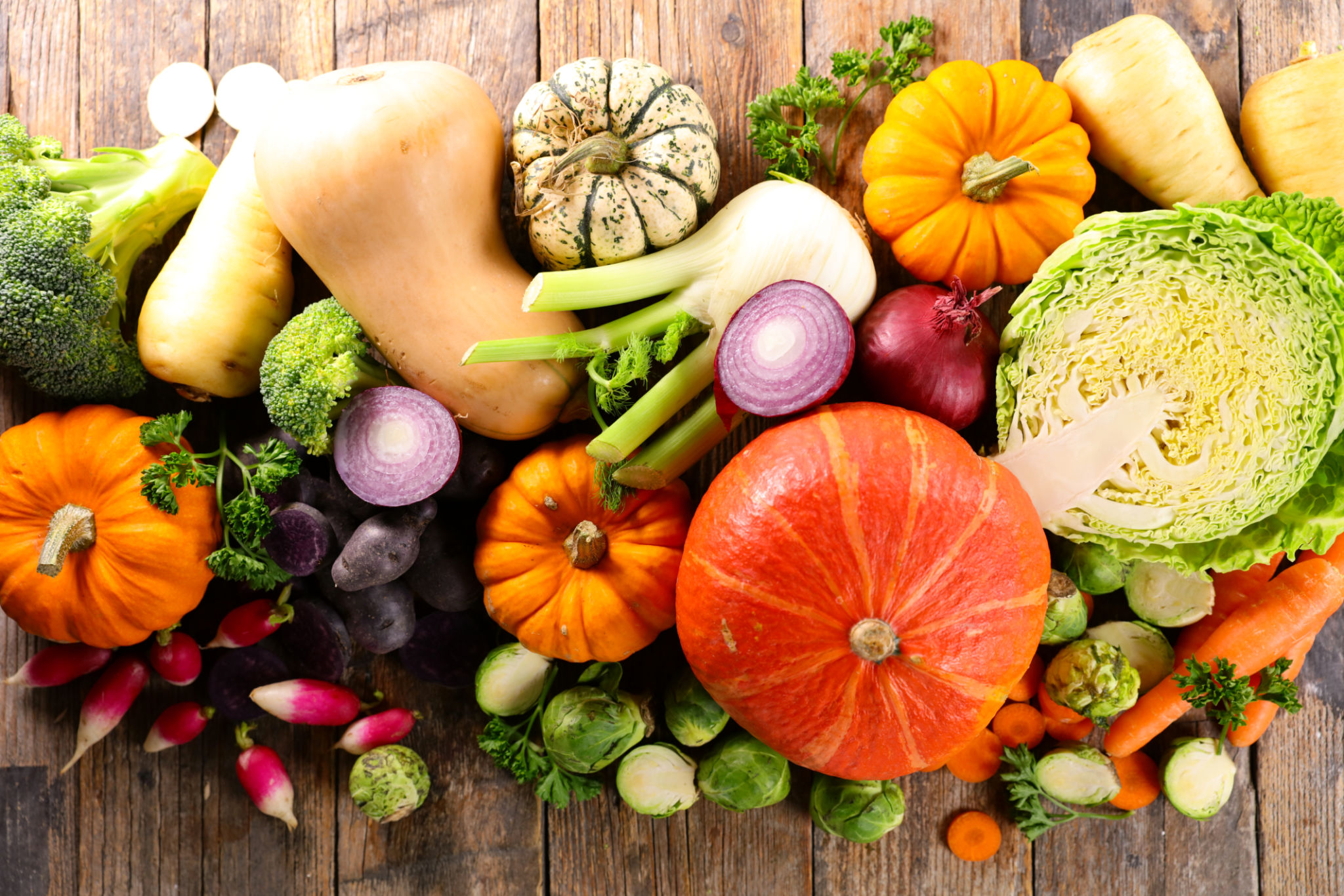Seasonal Foods for Optimal Health: A Guide to Eating with the Seasons
Understanding Seasonal Eating
Embracing the concept of seasonal eating can be transformative for both your health and the planet. Consuming foods that are in season ensures you're enjoying the freshest produce packed with nutrients. Additionally, it supports local farmers and reduces the environmental impact associated with transporting food over long distances.

Seasonal foods are those that are naturally grown and harvested during a specific time of year, offering the best flavors and textures. By aligning your diet with nature's cycles, you can enjoy a variety of tastes and nutritional benefits throughout the year. Let's delve into how you can optimize your health by eating with the seasons.
Spring: A Time for Renewal
As winter thaws into spring, it's a perfect opportunity to rejuvenate your body with fresh, light produce. Spring vegetables like asparagus, peas, and radishes are rich in vitamins and minerals that help cleanse and energize the body. These early greens are excellent for detoxifying and can be easily incorporated into salads and stir-fries.
Fruits such as strawberries and apricots begin to appear, offering a sweet yet healthy treat. These fruits are high in antioxidants, which play a crucial role in supporting immune function and reducing inflammation.
Summer: Vibrant Abundance
Summer brings an abundance of vibrant fruits and vegetables that are perfect for hydrating and nourishing the body during warmer months. Think juicy tomatoes, refreshing cucumbers, and a variety of berries like blueberries and raspberries. These foods are not only delicious but also packed with essential nutrients, fiber, and antioxidants.

Grilling season is in full swing, so take advantage of seasonal corn, zucchini, and bell peppers. These veggies can be easily grilled to enhance their natural sweetness and provide a nutritious addition to any meal.
Autumn: Harvest of Health
The autumn season is synonymous with a bounty of hearty produce that prepares the body for the colder months ahead. Root vegetables such as sweet potatoes, carrots, and turnips are rich in complex carbohydrates and provide long-lasting energy. Squash varieties like butternut and acorn are also in season, offering a comforting source of vitamins A and C.

This is the perfect time to enjoy apples and pears, which are loaded with dietary fiber. These fruits not only satisfy a sweet tooth but also promote digestive health. As daylight hours decrease, incorporating these nutrient-dense foods can help maintain your energy levels.
Winter: Warmth and Comfort
Winter is all about comfort foods that warm the body from the inside out. Root vegetables continue to dominate during this season, along with leafy greens such as kale and Brussels sprouts. These greens are high in vitamins K and C, crucial for maintaining a strong immune system during flu season.
Citrus fruits like oranges, lemons, and grapefruits reach their peak during winter months. Rich in vitamin C, these fruits can help ward off colds and keep your skin glowing despite the chilly weather.
Benefits of Eating Seasonally
Choosing seasonal foods not only enhances the taste of your meals but also provides numerous health benefits:
- Nutrient Density: Seasonal produce is harvested at its peak ripeness, ensuring higher nutrient content.
- Cost-Effectiveness: Foods in season are often less expensive due to their abundance.
- Environmental Impact: Supporting local produce reduces carbon footprint associated with transportation.

By aligning your diet with the natural growing cycles, you support your local community while enjoying fresher, more flavorful foods. Make seasonal eating a part of your lifestyle for optimal health benefits year-round.